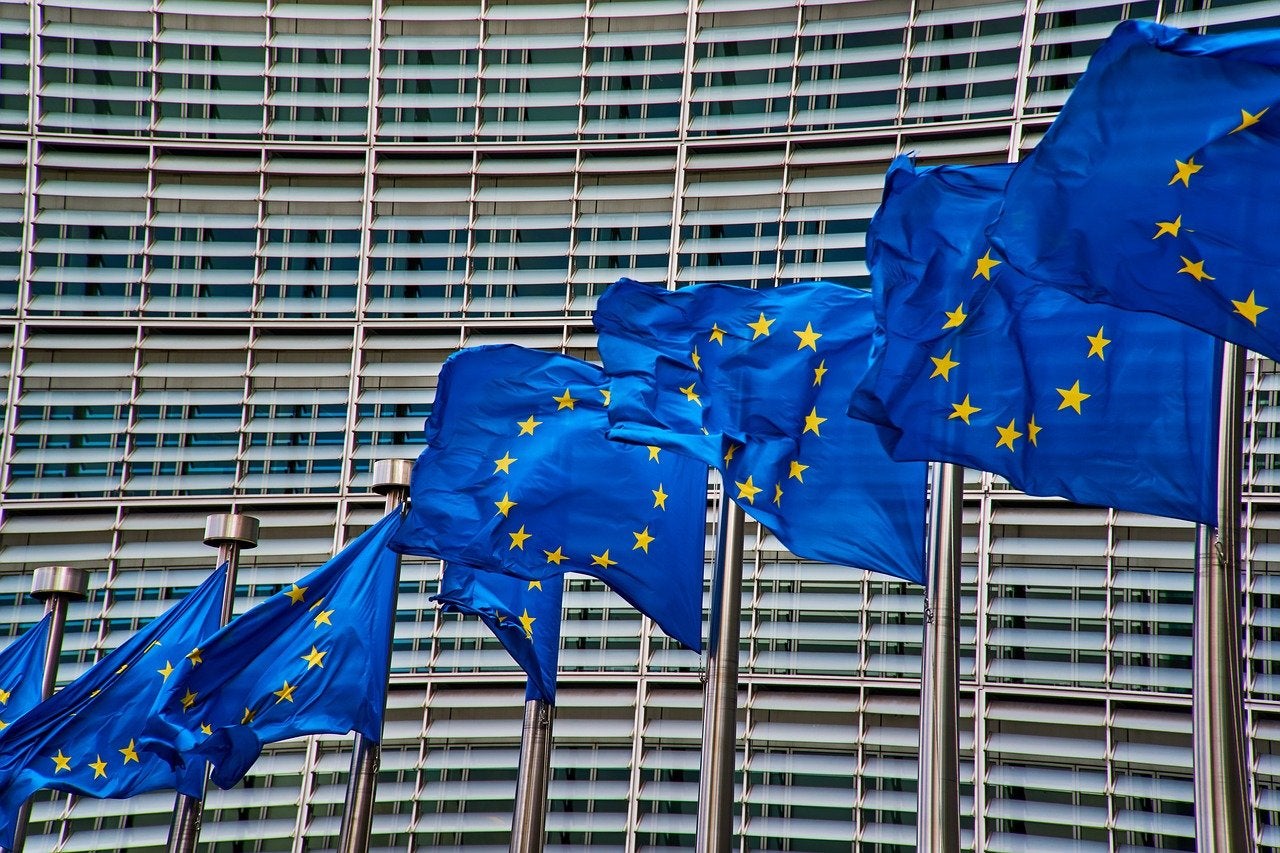
The European Commission (EC) put forward an EU-wide minimum tax rate for polluting aviation fuels, especially kerosene, on 14 July, as part of its proposed initiatives to reduce CO2 emissions by at least 55% by 2030.
The EC explained that the move will incentivise industries – including aviation, which was previously exempt from energy taxation by the EU – to move to greener fuels, aligning themselves with the European Green Deal, which aims for Europe to become the first net-zero continent by 2050.

Discover B2B Marketing That Performs
Combine business intelligence and editorial excellence to reach engaged professionals across 36 leading media platforms.
“The principle is simple; emissions of CO2 must have a price – a price on CO2 that incentivises consumers, producers and innovators to choose clean technologies, to go towards clean and sustainable products,” said EC President Ursula von der Leyen in a statement. “And we know that carbon pricing works.
“By acting now when we still have the policy choices, we can do things another way; we can build for our future by design and choose a better, healthier and more prosperous way for the future.”
Fit for 55: a wider EU package
The EC’s proposal to introduce an EU-wide minimum tax rate for polluting aviation fuels does not exist in a vacuum but is part of a bigger package called Fit for 55.

US Tariffs are shifting - will you react or anticipate?
Don’t let policy changes catch you off guard. Stay proactive with real-time data and expert analysis.
By GlobalDataIntroduced on 14 July, the package involves proposals to revise several pieces of EU legislation, aligning the existing laws to the European Green Deal’s objectives.
Policies that need revision include the EU Emission Trading Scheme (ETS) and member states’ targets outside of the ETS.
Launched in 2005, the EU ETS works on the cap-and-trade system where, on reaching a maximum cap set for CO2 emission allowances, companies can go over the limit by buying additional allowances from companies that have not used theirs.
The system has been strongly criticised over the last few years due to its inability to support reaching the EU’s goals.
Minimum tax rate for polluting aviation fuels
The proposal put forward by the Commission on 14 July aims to alter how energy products are taxed, particularly addressing the harmful aspects of energy tax competition.
Until now, under EU law member states could theoretically tax polluting aviation fuels but were under no legal obligation. This resulted in the aviation industry not responding to incentives.
Under the new proposal, polluting aviation fuels – especially kerosene – will no longer be exempt from energy taxation on intra-EU flights. The tax, applicable to both private and commercial flights, will be introduced gradually from 2023 before being enacted in full in 2033, after a transitional period of ten years.
Once in place, kerosene’s price will be at €10.75/GJ, while sustainable fuel such e-kerosene will benefit from a minimum rate of zero. The tax will complement other existing measures under the ETS and the EU Refuel initiative.
Divisive plan
The plan has been deemed potentially difficult to implement and received mixed reviews from both environmental and industry stakeholders.
According to NGO the European Federation for Transport and Environment (T&E), the proposal’s main flaw is that the tax rate does not apply to flights that go outside of the EU, which represent around 60% of all emissions.
“Axing jet fuel’s tax exemption in Europe is a vital step towards ending decades of subsidised pollution, which even included fuel for private jets,” commented T&E aviation director Andrew Murphy. “But by not removing the tax exemption for flights outside of the EU, it still lets the majority off the hook.”
According to Murphy, sustainable fuel regulation is the only way to have the biggest long-term impact at the environmental level.
“The aviation industry will be required to start using greener fuels on all European routes, which unlike the other proposals includes the long-haul flights that cause the most emissions,” he added. “Setting a sub-target for e-kerosene is crucial as it is the only green fuel with the potential to be scaled up to meet the sector’s demands.
“However, that target should be set even higher to really drive down emissions from flying.”
Another criticism posed by environmental associations including Greenpeace is that the plan sets the bar too low, only implementing policies after more than ten years.
“Celebrating these policies is like a high jumper claiming a medal for running in under the bar,” explained Greenpeace EU director Jorgo Riss. “You can’t sidestep the rules of the game, just like you can’t ignore climate science.
“This whole package is based on a target that is too low, doesn’t stand up to science, and won’t stop the destruction of our planet’s life-support systems.”
Many airline industry representatives believe that the proposal will be counterproductive on an environmental and economic level. Thomas Reynaert, managing director at trade body Airlines for Europe (A4E), explains that taxation policies, if not thought through, will not reduce emissions.
“By making flying more expensive, it may shift demand globally and reduce traffic locally,” he says. “But it will not tackle the source of the emissions.”
What is needed, Reynaert continues, is investment in solutions that can bring about a significant reduction of emissions, but this cannot take place if airlines are heavily taxed on already existing fuels.
At the economic level, measures like the proposal might harm even further an industry that is already on its knees because of the Covid-19 pandemic.
“The Fit for 55 policies risk affecting this competitiveness and that of the entire aviation ecosystem, Europe’s tourism industry and the wider EU economy,” reads the A4E statement.





